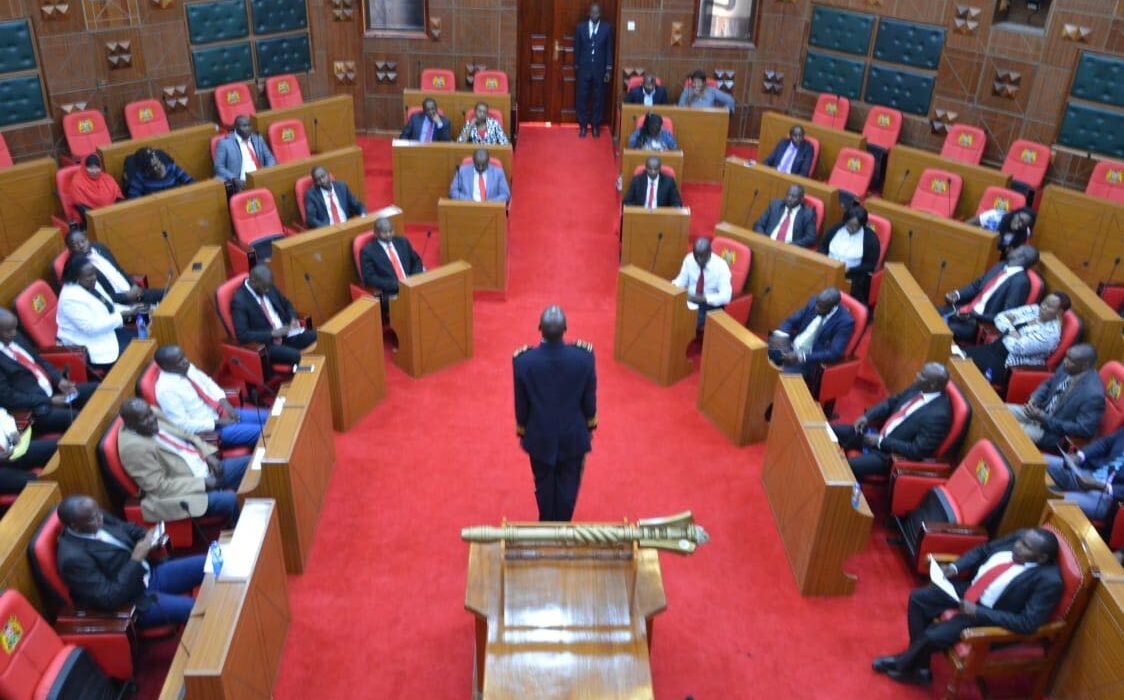Nakuru County, a significant economic hub in Kenya’s Rift Valley region, is renowned for its rich agricultural potential, tourism, and strategic location. The county is led by Governor Susan Kihika, who was elected on August 12th, 2022, under the United Democratic Alliance (UDA) party. Governor Kihika’s administration is committed to fostering growth and development across the county by focusing on key sectors such as agriculture, infrastructure, health, and education.
Nakuru’s governance structure includes a team of County Executive Committee (CEC) members responsible for various ministries. These CECs play a critical role in implementing county policies and ensuring service delivery to the residents. This article outlines the list of Nakuru County ministers and their specific roles.
List of Nakuru County Government Ministers (CECs)
The Nakuru County government is supported by 10 CEC members, each overseeing critical ministries that address the diverse needs of the county’s population. Below is a detailed list of these ministers and their roles:
| Ministry | Minister (CEC) |
|---|---|
| 1. Education, Youth, and ICT | Zipporah Wambui |
| 2. Finance and Economic Planning | Stephen Iribe Njogu |
| 3. Trade, Culture, and Tourism | Stephen Muiruri Kuria |
| 4. Public Service Management | Roselyn Wanjiru Mungai |
| 5. Agriculture, Livestock, Fisheries, and Cooperatives | Leonard Kipkoech Bor |
| 6. Health Services | Dr. Samuel Mwangi Mwaura |
| 7. Water, Environment, Energy, and Natural Resources | Dr. Nelson Tanui Maara |
| 8. Sports, Gender, Culture, and Social Services | Josephine Atieno Achieng |
| 9. Lands, Physical Planning, Housing, and Urban Development | John Karanja Kihagi |
| 10. Roads, Public Works, Transport, and Infrastructure | Michael Kamau Karanja |
Overview of the Ministries and Their Responsibilities
- Education, Youth, and ICT (Zipporah Wambui)
- The ministry focuses on improving education standards, promoting youth empowerment, and integrating ICT in service delivery. It aims to enhance access to quality education, support youth entrepreneurship, and develop digital infrastructure to foster innovation in Nakuru County.
- Finance and Economic Planning (Stephen Iribe Njogu)
- Stephen Iribe Njogu’s role includes overseeing the county’s financial management, budgeting, and economic planning. The ministry ensures that county resources are utilized efficiently and transparently, fostering sustainable economic growth and supporting development projects.
- Trade, Culture, and Tourism (Stephen Muiruri Kuria)
- This ministry aims to promote Nakuru as a prime destination for tourism while supporting trade and cultural heritage. It focuses on creating a conducive environment for businesses, boosting local tourism, and preserving the cultural diversity of Nakuru.
- Public Service Management (Roselyn Wanjiru Mungai)
- Roselyn Wanjiru Mungai leads efforts to improve the efficiency and effectiveness of public service delivery. The ministry oversees human resource management, service delivery frameworks, and promotes transparency within the county’s public service sector.
- Agriculture, Livestock, Fisheries, and Cooperatives (Leonard Kipkoech Bor)
- Agriculture is the backbone of Nakuru’s economy, and Leonard Kipkoech Bor’s ministry is dedicated to enhancing agricultural productivity. It supports farmers through training, modern agricultural practices, and cooperative development, ensuring food security and sustainable livelihoods.
- Health Services (Dr. Samuel Mwangi Mwaura)
- Dr. Mwaura’s ministry is responsible for providing quality healthcare services throughout Nakuru County. It focuses on improving health infrastructure, ensuring access to medical services, and implementing public health programs to improve the well-being of the residents.
- Water, Environment, Energy, and Natural Resources (Dr. Nelson Tanui Maara)
- This ministry is tasked with managing water resources, promoting environmental conservation, and exploring sustainable energy solutions. Dr. Maara oversees programs aimed at addressing water scarcity, preserving natural ecosystems, and mitigating climate change impacts.
- Sports, Gender, Culture, and Social Services (Josephine Atieno Achieng)
- Josephine Atieno Achieng leads initiatives that promote sports development, support gender equality, and enhance social welfare. The ministry also focuses on preserving cultural heritage and empowering marginalized groups within the county.
- Lands, Physical Planning, Housing, and Urban Development (John Karanja Kihagi)
- This ministry, led by John Karanja Kihagi, is responsible for land management, urban planning, and housing development. It aims to create sustainable urban spaces, streamline land allocation, and address housing challenges in Nakuru County.
- Roads, Public Works, Transport, and Infrastructure (Michael Kamau Karanja)
- Michael Kamau Karanja’s ministry plays a key role in improving Nakuru’s infrastructure. It focuses on road construction, maintenance of public works, and enhancing transport systems to support economic activities and improve connectivity within the county.
County Ministers (CECs) Salaries in Kenya
County Executive Committee members (CECs) in Kenya, including those in Nakuru County, receive a structured salary package as determined by the Salaries and Remuneration Commission (SRC). Below is a breakdown of their compensation:
- Basic Salary: Ksh 242,550
- House Allowance: Ksh 45,000
- Market Adjustment: Ksh 81,700
- Total Salary Per Month: Ksh 404,250
The salary package is designed to reflect the responsibilities of the CEC members, who play a pivotal role in policy implementation and service delivery at the county level.
Importance of CECs in County Governance
The County Executive Committee members are central to the devolved system of governance in Kenya. They are responsible for executing policies, managing resources, and overseeing service delivery in their respective ministries. The effectiveness of CECs directly impacts the success of county governments in addressing local needs and achieving development goals. In Nakuru, the CECs work collaboratively to drive the county’s development agenda, focusing on areas like health, agriculture, infrastructure, and social welfare.
Under the leadership of Governor Susan Kihika, Nakuru County’s administration is positioned to make significant strides in socio-economic development. With a team of dedicated CEC members, the county is able to address the diverse needs of its residents and foster an environment conducive to growth. The collaborative efforts of these ministers ensure that Nakuru remains a key contributor to Kenya’s overall development and prosperity.
The strategic management of Nakuru’s resources and the commitment of its leadership to service delivery will play a crucial role in shaping the county’s future. As Nakuru County continues to implement its vision for growth, the role of CEC members will remain central to realizing the county’s goals and improving the quality of life for its residents.




